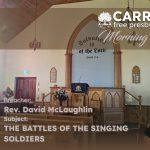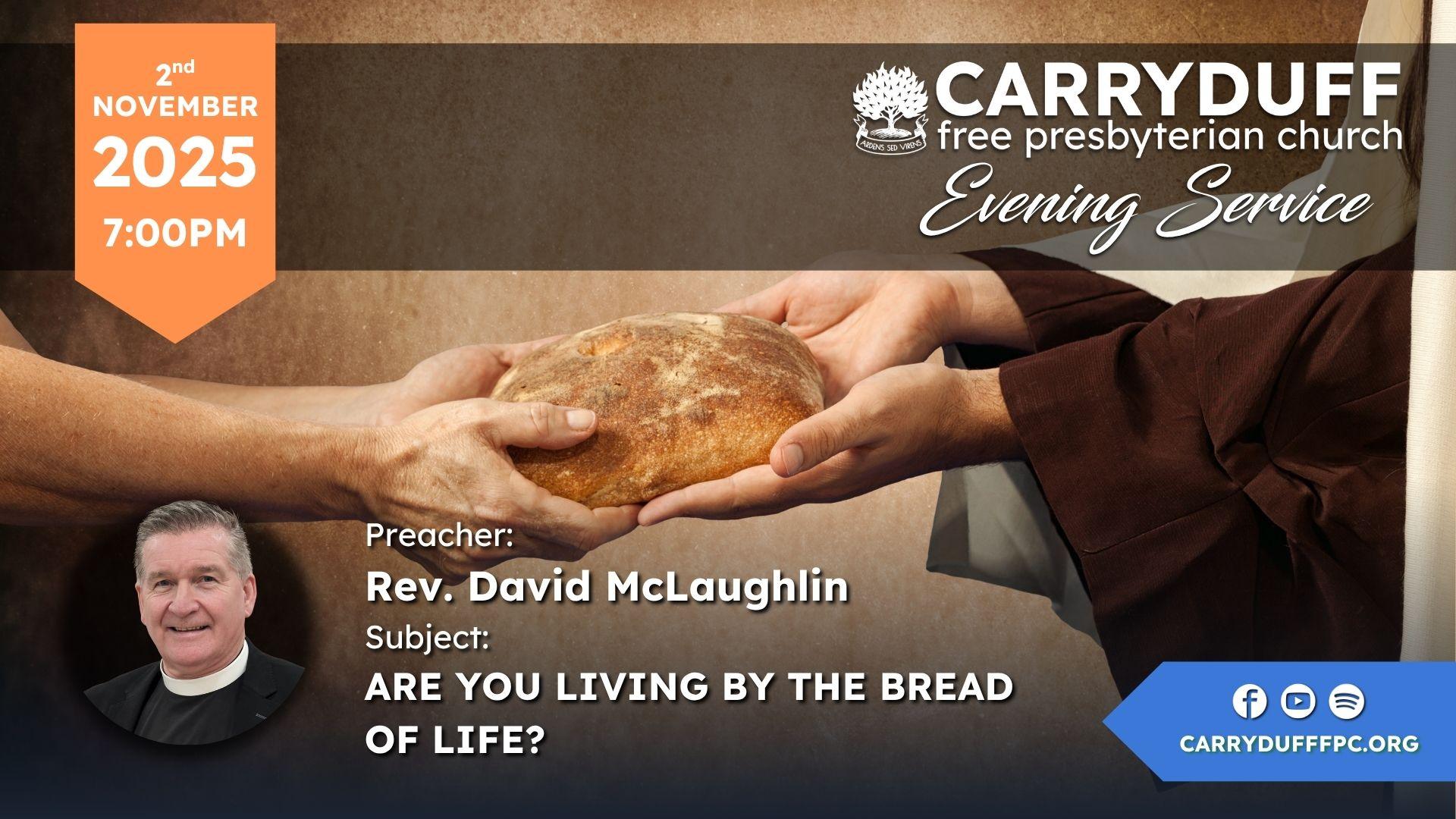Date: SUN 11:30 AM 15th June 2025
Preacher: Rev. David McLaughlin
Bible Reference: Psalms 78:7
That they might set their hope in God,
and not forget the works of God,
but keep his commandments:
Sermon Summary: The Focus on Faithful Fathers (Psalm 78:5-7)
Scripture Reading: Psalm 78:1-12 (Authorised/King James Version)
Text: Psalm 78:5-7
Theme: The vital role of fathers in fostering spiritual stability, strength, and godliness in the home and society.
Occasion: Father’s Day, June 15, 2025
Preacher’s Main Point: Fathers are not only biologically necessary but spiritually essential, contrary to secular claims. They are commanded by God to teach their children His Word, ensuring future generations know and follow Him.
Introduction
The sermon, delivered on Father’s Day, draws from Psalm 78, written by Asaph, to emphasize the critical role of fathers in the spiritual and moral health of families and society. The preacher highlights the frequent mention of “fathers” (five times in the psalm) to underscore their God-given responsibility. He critiques modern societal trends, particularly the “woke feminist brigade” which diminishes fathers to a “psychological absurdity”. The preacher asserts that Scripture and evidence affirm their indispensable role. The sermon is structured around four key aspects of faithful fatherhood: Conversion, Commission, Motivation, and Consecration.
Key Points
- The Conversion of Faithful Fathers (Psalm 78:5, 52)
- Faithful fathers must have a personal, transformative relationship with God through the new birth (John 3:5-7). The preacher references Nicodemus, a religious but unregenerate man, to illustrate that mere religious observance is insufficient.
- Fathers in Psalm 78 are described as God’s people, living in intimate fellowship with Him. The preacher challenges fathers to examine whether they are “born again,” emphasizing that spiritual regeneration distinguishes them in their roles.
- A converted father’s life reflects God’s grace, impacting their conduct, choices, and influence as husbands, workers, and parents. This relationship with God enables them to lead their families with spiritual authority.
- The Commission of Faithful Fathers (Psalm 78:5-6)
- God commands fathers to teach His Word and works to their children, ensuring that future generations know Him. This commission is rooted in the cross, encompassing God’s person, praise, power, pardon, provision, purity, and promises.
- The purpose is multigenerational: children and their descendants should know God’s marvelous deeds (creation, providence, redemption) and live accordingly. The preacher laments the decline in teaching God’s Word in homes and schools, linking it to societal breakdown.
- He strongly rejects the idea of religious neutrality in the home, calling it a form of “anti-God religion.” Just as parents provide food and water for physical needs, they must provide God’s Word for spiritual nourishment. Withholding this is described as a “monstrous crime.”
- The Motivation of Faithful Fathers (Psalm 78:5)
- Faithful fathers are motivated by loving obedience to God’s command. Their delight in God’s Word and works drives them to share it with their children.
- This is not a casual task like teaching hobbies but a consuming preoccupation with God. The preacher emphasizes that fathers, not just schools or churches, bear primary responsibility for their children’s spiritual well-being.
- Effective teaching stems from a father’s personal joy in Scripture, making it compelling for children. The Holy Spirit empowers this process, ensuring the Word’s impact.
- The Consecration of Faithful Fathers (Psalm 78:5, 7-8)
- Faithful fathers must trust and live by God’s Word, which is infallible, inerrant, and authoritative over human ideas. The preacher cites Isaiah 8:20 to urge fathers to prioritize Scripture in all areas, including child-rearing.
- Consecrated fathers guard against secular ideologies like feminism, humanism, evolution, atheism, and resurgent Roman Catholicism, which undermine God’s truth. They model godly living and teach foundational truths (e.g., the Lord’s Prayer, Beatitudes, Ten Commandments).
- The goal is to raise children who set their hope in God, obey His commandments, and avoid the stubbornness of past generations (Psalm 78:7-8). The preacher warns that neglecting this duty contributes to a generation of “Bible illiterates” confused about basic moral and spiritual truths.
Application
- Societal Context: The preacher attributes the United Kingdom’s moral and social decline to the breakdown of the family unit, particularly the absence of godly fatherhood. He cites a 300% increase in single-parent homes over the past century and the removal of biblical teaching from schools as key factors.
- Call to Action: Fathers are urged to repent, return to God, and diligently teach their children His Word. This is not optional but a divine mandate. The preacher encourages fathers to lead by example, delight in Scripture, and ensure their children know foundational Christian truths.
- Warning: Failing to teach God’s Word risks raising a rebellious generation (Psalm 78:8). The preacher challenges fathers to reject religious neutrality and secular ideologies, prioritizing God’s truth in their homes.
Illustrations and Examples
- Nicodemus (John 3): Used to highlight the necessity of spiritual rebirth over mere religiosity.
- Historical Practices: The preacher recalls when schools taught the Lord’s Prayer, Beatitudes, and Ten Commandments, contrasting this with modern secular education.
- Anecdote from Aberdeen: A child’s response that Hansel and Gretel were the first man and woman illustrates the ignorance resulting from biblical illiteracy.
- Modern Home Scenario: The idea of parents being “neutral” about religion is critiqued as deceptive and harmful, akin to withholding food from a hungry child.
Conclusion
The sermon concludes with a heartfelt Father’s Day greeting and a promise to revisit the topic in a future series on the family. The preacher calls fathers to embrace their God-given role with urgency, delight, and obedience, warning that the spiritual health of homes and society depends on their faithfulness. By living as converted, commissioned, motivated, and consecrated fathers, they can raise children who know God, keep His commandments, and hope in Him, reversing the tide of societal decay.
Key Takeaways
- Fathers are biologically and spiritually essential, contrary to secular claims.
- God commands fathers to teach His Word to their children, ensuring multigenerational faithfulness.
- Religious neutrality in the home is impossible and equates to anti-God religion.
- Faithful fatherhood requires personal conversion, obedience to God’s command, delight in His Word, and trust in its authority.
- Societal decline is linked to the erosion of biblical teaching in homes and schools, underscoring the urgency of faithful fatherhood.
Subscribe to the podcast here:
Spotify Podcasts | Apple Podcasts | Pocket Casts
Email | RSS | more information here








